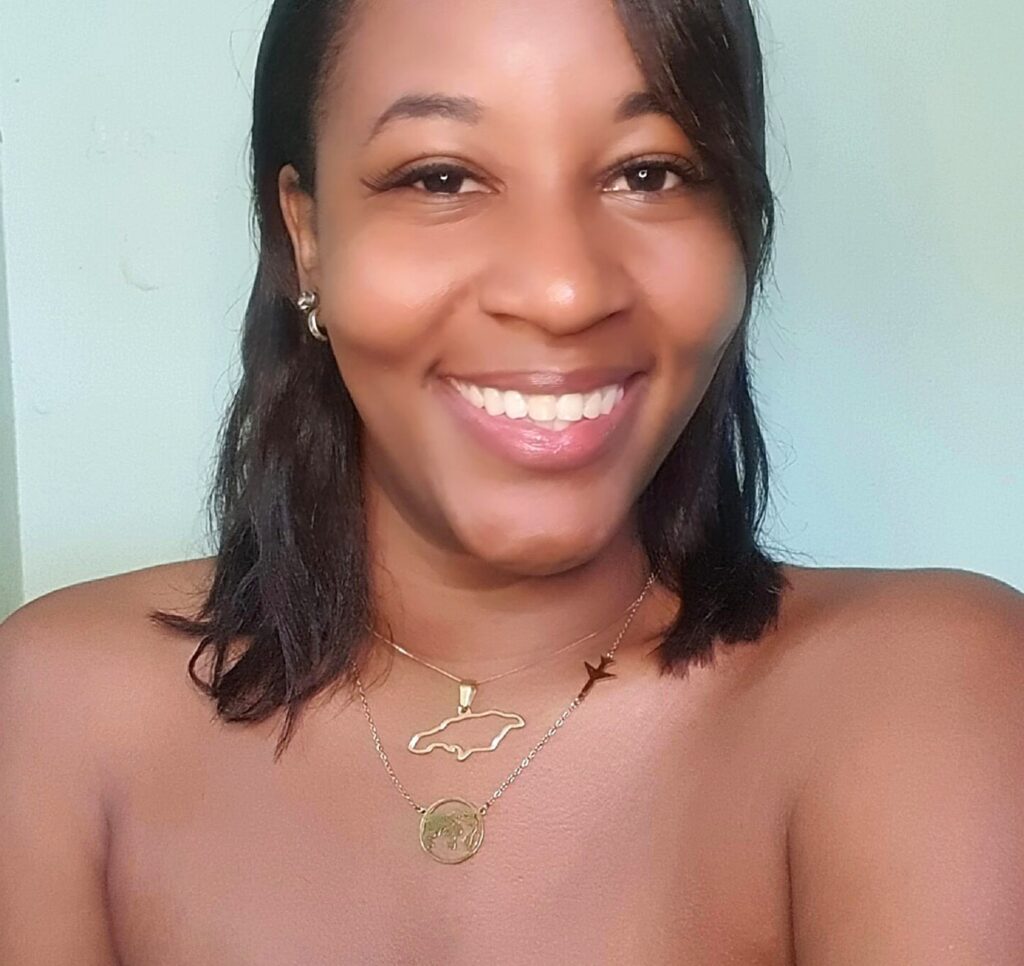When speaking of Jamaican music, first thoughts may go to today’s popular forms of Reggae and Dancehall. However our multiple melodic contributions to the world predate those, and continue to evolve over time. Various types of Jamaican music have repeatedly crossed generations, genres, and population groups. From Millie Small’s ‘My Boy Lollipop’ ska cover to Marcia Griffith’s ‘Electric Slide’ anthem and the Maytals’ transcending ‘Bam Bam’ hit, eras of musical prowess have been produced in and by Jamaica; a large selection being from Kingston’s Music Streets! Among numerous things to do in Kingston, there are Jamaican music tours and sites that celebrate and teach about our native sounds. I stopped by a few, donning my heritage pride in a selection of Culture by People eco-fabric tees.
As the reputed origin of 6 musical genres in the 20th century, Kingston produced the most music per capita globally when dubbed as a UNESCO City of Music. It is a city referred to by many as the culture capital of Jamaica (and even the Caribbean). You may be surprised journeying through trademark recording studios and modest homes that housed timeless tunes. It can be eye-opening to notice the wad of talent from Jamaican music history that largely evolved from this small city to reach the world!
Credits
- T-shirts: Culture by People
- Photos (majority): Sean Murray
- Photo edits: SimplyLocal.life

Jump to Section:
Jamaican Music Tours
Trench Town Culture Yard
Blocks of a public housing scheme known as Trench Town acted as an affordable accommodation area for a transitioning rural population in the 1940s. The West Kingston inner-city community birthed a multitude of Jamaican music greats, creating a phenomenon of raw talents and local productions. Being home to many legends, Trench Town is widely reputed as the birthplace of Reggae! In addition to The Wailers famous trio (Bob Marley, Peter Tosh and Bunny Wailer), Trench Town has also produced bonafide musicians like Ken Boothe and Dennis Brown to name a few.


Tour / Booking Info
- Trench Town Culture Yard Website
- 876-803-1509 or 876-859-6741
- Tour Manager: [email protected]

View Kingston Music Streets black short-sleeve tee►
Wailers Museum
Neville “Bunny Wailer” Livingston was the last living former member of The Wailers trio. The Wailers Museum was converted from his Washington Gardens home with support from his family and manager. It includes artifacts, awards, photographs and audiovisual content of “Bunny” as well as The Wailers Reggae band.
“Bunny” reportedly oversaw the design and narrative of the Wailers Museum to ensure it mirrored his interpretation of the legacies. It is greatly influenced by Rastafarian culture, evident from the adornment of red, gold, and green of the flag and sacred symbols.
Tour / Booking Info
- Location: 9 Darley Cresent, Washington Gardens
- (876) 850-4403
- [email protected]

Peter Tosh Museum
Peter Tosh was another member of The Wailers, along with “Bunny” Wailer and Bob Marley. He was a self-taught musician who skillfully played the guitar and keyboard, and found much success after combining forces with his fellow band mates during his time in Trench Town. His music often amplified his views in equal rights and marijuana legalization.
Kingston’s Peter Tosh Museum opened on the grounds of the Pulse Centre in New Kingston. It highlights his life (from early years to his prized music career), includes artifacts and a collection of souvenirs. Signature possessions such as his unicycle and custom-built musical memorabilia highlight some of his personal treasures.
Tour / Booking Info
- Location: Pulse Centre, 38a Trafalgar Road
- Peter Tosh Museum website
- (876) 960-0049

Bob Marley Museum
To much of the world, legendary musician Robert “Bob” Marley is synonymous with Jamaica and Reggae. His injection of spirituality, controversial political views, and advocacy of marijuana legalization shaped him into an icon in many ways. Of course a museum had to be named in his honour (like a community beach he frequented when alive).
The island’s most popular Jamaican music tour is the Bob Marley Museum on the site of his final home; a centerpiece along a busy main road. The house-turned-museum was converted by his widow years after his transition, showcasing his music legacy and personal treasures. Bob Marley Museum houses a theatre (which shows a video presentation during a tour), photo gallery, and a gift shop filled with Bob Marley memorabilia. The One Love Café is also on-location serving meals and beverages before or after your hour-long tour.
Tour / Booking Info
- Location: 56 Hope Road
- Bob Marley Museum Website
- (876)630-1588
- [email protected]

View Kingston Music Streets black short-sleeve tee►
Tuff Gong International Recording Studio
An insightful tour at Bob Marley’s famous recording studio grants a behind-the-scenes look at the process to make vinyl records. Traversing the iconic space will take you through a rehearsal room, lounge, engineering room, and recording studio. As one of the Caribbean’s largest live recording spaces, it has honed many great names in the world’s music industry, past and present!
The interactive Tuff Gong International Studio tour will demonstrate how records are made, from the acetate disc and vinyl pebbles to the pressed 45 or LP. It will also teach you about the Marley family (who own it today), and the many international icons who have created classics at the studio.

View Kingston Music Streets black short-sleeve tee►
Tour/Booking Info
- Location: Entrance on Bell Road, 220 Marcus Garvey Drive
- Contact Bob Marley Museum to book
Jamaican Music celebrated in Downtown Kingston
Multiple murals in the art district colour Downtown Kingston with our music culture. A mission of area revitalization brings new life to zones of worn Downtown structures; some only housing the glory of rich pasts. From the 1950s to the 1980s new genres of Jamaican music emerged, from recording studios to the speaker boxes of street dances and sound system clashes in Kingston Music Streets. Museums, a national gallery, historic theatres, and social events underscore Downtown Kingston’s wealth of cultural authenticity.
Orange Street (Beat Street), Downtown Kingston
Many don’t realize the significant role that Orange Street in Downtown Kingston played in Jamaican music. It was noted as a hub of activity that drove the Jamaican music culture in its early stages.
It’s affectionately called Beat Street, celebrating great musicians who recorded there plus sites of interest with ties to Kingston’s musical heritage. It was the original home to Clement “Coxsone” Dodd’s Studio One Records (moved to Maxfield Avenue), original studios of Lee ‘Scratch’ Perry, and Cecil “Prince Buster” Campbell’s Record Shack. Its last standing recording studio is Small World (on the corner of Charles Street), and Rockers International is its last vinyl record store.

Jamaica Music Museum
The Jamaica Music Museum is a division to the Institute of Jamaica that archives and exhibits Jamaican music forms. This legacy project showcases our rich musical history, which predate the country’s Independence. It highlights social and historical values encompassed and impacted by our native tunes through rare recordings, films, research files, business records, and artifacts of Jamaican musicians.
The Jamaica Music Museum also hosts public lectures and events that correlate our music to sociological, political, and cultural climates throughout history. The most prominent being its Grounation series, which commemorates both Black History Month and Reggae Month in February.
Museum Info
- Location: 10 – 16 East Street (inside Institute of Jamaica)
- Jamaica Music Museum website
- (876) 922-0620-6 (ext 266)
- [email protected]


The identity and undeniable impact of our culture continue to spread to other countries in various ways, including music. Jamaica’s native genres created between the 1950s and 1980s subsequently became popular worldwide. Though Jamaican music draws from international influences, so too does global music often inspired by us. Our sound has been credited with the creations and evolution of Hip Hop, Reggaeton, and others. Celebrate our culture and contributions to the music world by embarking on a Jamaican music tour (and grabbing Culture by People tees).
Have you done or plan to do any of these Jamaican music tours???
Like this article? Pin for future travel plans!










This is so cool and comprehensive. Thanks for sharing.
Thanks for leaving your feedback!